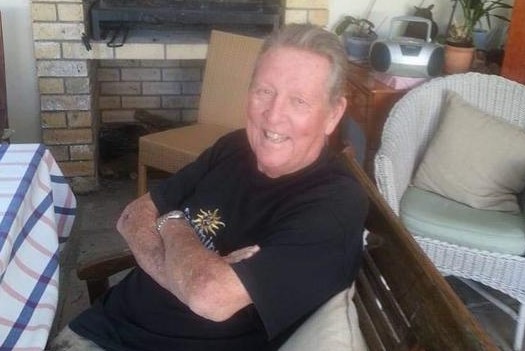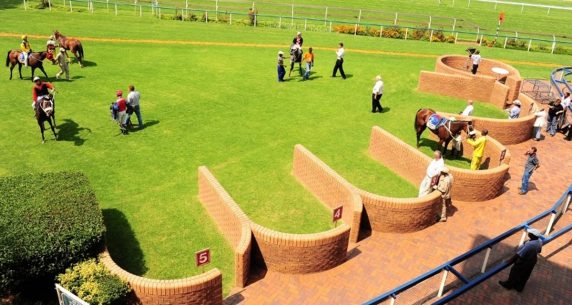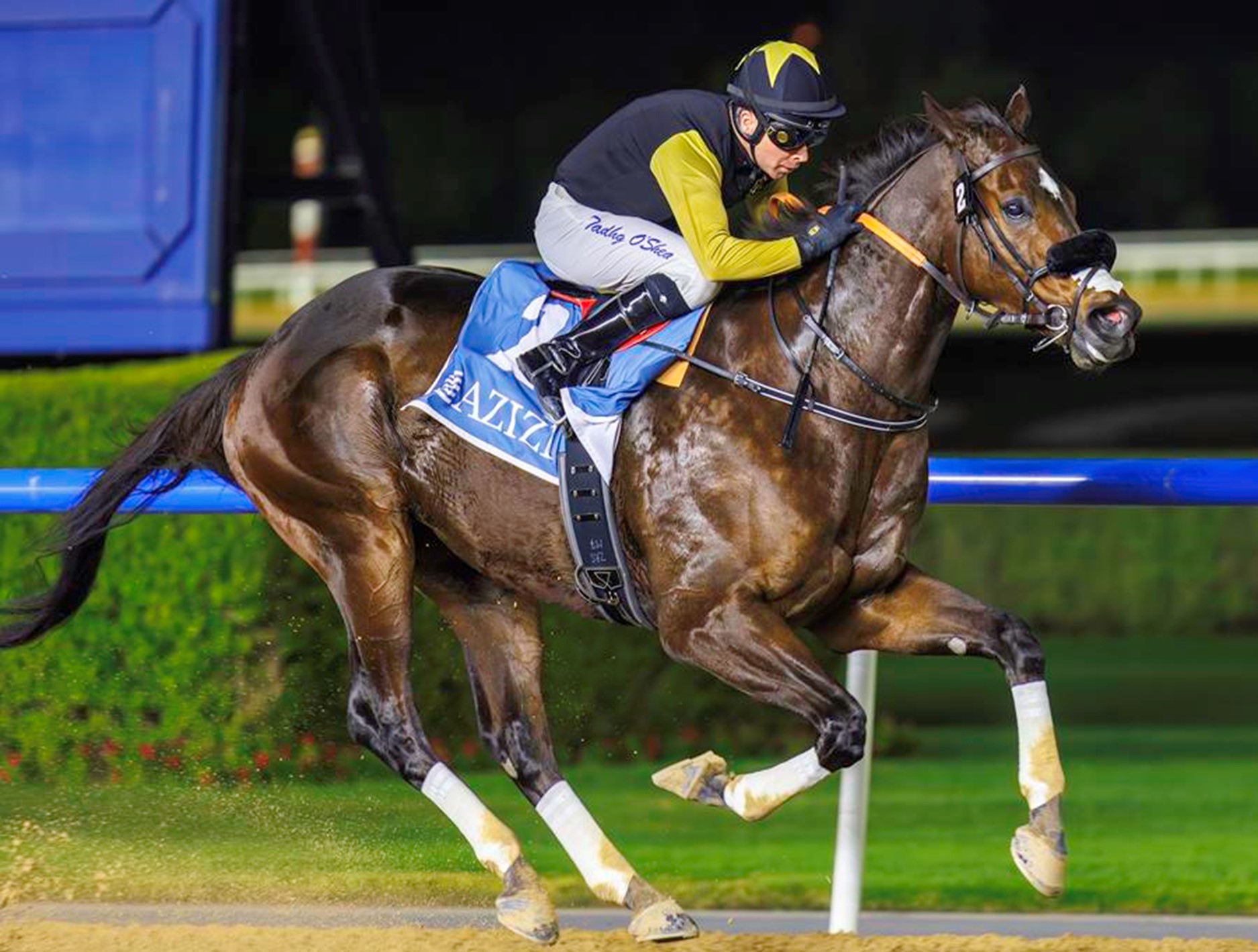Cape owner and NHRA life member Sir William Pigott-Brown, who passed away on Monday in a Cape Town Nursing Home at the age of 79, has been described by trainer Dean Kannemeyer as a widely-travelled charismatic man who knew his horses and how to enjoy the social side of the game.
Sir William died this week in South Africa, where he maintained a stylish home on Third Beach at Clifton, where he was looked after by his devoted housekeeper Hazel and odd-job man Joe.

Kannemeyer was an assistant to his late Dad Peekay when Sir William joined the family operation at Barn 1 in Milnerton.
“An extraordinarily social man who loved racing, socialising and enjoying life. He introduced many influential friends to racing, and raced in partnership with the likes of Rupert Wragg.”
Kannemeyer recalled that leading Bloodstock Consultant Jehan Malherbe was still establishing himself at the time and he played a key role in Sir William’s acquisitions.
“He raced some good horses. American Eagle, Coolstar and Laid Back come to mind.In those days, Friday evening drinks at Barn 1 were a regular feature and they were memorable occasions where the weekend’s racing and life were high on the agenda of discussion.
The Daily Mail reported this week that Sir William’s country estate at Aston Tirrold in Oxfordshire, where he farmed and bred racehorses, was at the nexus of a vibrant social network of rock stars and film stars, aristocracy and celebrity, old money and new.
Sir William Pigott-Brown succeeded to his title at the age of one and never knew his father, who was killed in action in North Africa.
And the man presiding over it all, whose considerable inherited fortune and generosity kept the whole show on the road (until the money ran out) was Sir William himself, known as the ‘sporting baronet’, a cross, if you like, between Biggles and Bertie Wooster.
A gambler, but not as reckless as Lord Lucan, he often played the tables as the Clermont Club, once losing £35,000 in a sitting at chemin de fer.
But he was happier betting on horseflesh than on the turn of the cards.
He succeeded to his title at the age of one and never knew his father, who was killed in action in North Africa.
He had to wait until he was 21 to receive his inheritance — but it was conspicuously worth it.
Sir William was a louche playboy who wooed some of the most glamorous women of the age but never married, and whose insecurities were sheltered behind a childlike pleasure in misbehaving.
Pigott-Brown was neither conventionally good-looking nor devilishly clever, but he had considerable bravery — twice becoming the champion amateur jockey — and possessed an easy charm and warmth that made him lifelong friendships in a world where so many were superficial.
Perhaps most remarkably of all for a man with such a rackety private life, he rarely fell out with any of his ex-loves.
As one former girlfriend observed: ‘Women found him attractive. There was something calmly reassuring about him, even though he was terribly unreliable and prone to bad behaviour.’
His old flames included Aldine Honey. Sometimes it was hard to tell where one relationship ended and another began; but as Sir William was fond to recall years later: That’s what it was like in the Sixties’
He was linked to models such as Pat Booth, Erica Creer, Aldine Honey, the exotic Nigerian Minah Bird and the German Geschi Fengler, known as ‘the beautiful Valkyrie’.
Then there were the heiresses: Wendy Stark, daughter of Hollywood producer Ray Stark, Linda Christian, ex-wife of leading man Tyrone Power, and Baroness Fiona Thyssen, one of billionaire Swiss industrialist Heini Thyssen’s many ex-wives.
They all slipped through his fingers like sand.
Sometimes it was hard to tell where one relationship ended and another began; but as Sir William was fond to recall years later: ‘That’s what it was like in the Sixties.’
In those days, he was on every list of eligible bachelors. His courage as a steeplechase rider and that inherited fortune — £750,000 in 1962 would be worth around £16 million today and went considerably further — saw to that.
In 1964, he was profiled for the Daily Mail alongside other notable single men including society photographer Tom Hustler, Brian Epstein, the Beatles’ manager, and future Tory Prime Minister Edward Heath.
Not that Pigott-Brown was against marriage. The ideal girl, he once mused, ‘must be keen on my interests: racing, shooting and hunting’.
In fact, only racing remained a passion as his life oscillated between that of country squire and nightclub-going man-about-town. He later became a pioneer of the ‘jet set’.
A brief engagement to Brigadier’s daughter Susan Morley was abandoned after a few months.
Meanwhile, he was opening Sibylla’s, the disco where Swinging London went dancing, in partnership with Beatle George Harrison.
He also founded Browns, the iconic boutique on South Molton Street, had a quarter share in Island Records (which made Bob Marley a star), launched a theatrical agency, owned a Mayfair tailors and was publisher of a London magazine.
If anyone epitomised the opportunities that sprang up in the Swinging Sixties it was the Beatle-haired Old Etonian.
All this he had achieved before the age of 30. But by then he’d already had one life as an amateur jockey and bloodstock specialist.
William Pigott-Brown was born in Windsor in January 1941, succeeding to the baronetcy when his father Captain Sir John Pigott-Brown, serving with the Coldstream Guards, was killed in the battle of Longstop Hill in North Africa on Christmas Day 1942.
His grandfather Gordon was killed in action in World War I.
William’s godparents included Major Bruce Shand, father of the Duchess of Cornwall, whose late brother Mark became a lifelong friend.
For many years Pigott-Brown was romantically involved with Dido Goldsmith, whose sister Clio was Shand’s wife.
After Eton and a spell in the family bank, Brown Shipley (which had employed Ted Heath), and having failed the initiative test for the Army, he left for Australia to work on a sheep station.
It was there he learnt to ride, initially to avoid having to dock sheep’s tails, which was the only other job on the farm.
Back in England, he persuaded his trustees to buy him a horse; they agreed, provided he found a trainer to work for as a stable lad.
A fearless rider, he was champion amateur jockey for two years in succession. It earned him the respect of professional riders such as Lester Piggott, another long-term friend.
But in 1964 on a cold, blustery day at Worcester racecourse, he ran his last race.
After multiple falls and injuries he realised, as he later put it, ‘I’d lost my nerve’. Anyway, by then he was moving on to pastures new.
‘My father was never allowed to touch any of the family money until he was 27, and he was killed in the war soon afterwards,’ Sir William later told me.
‘He said before he was killed that if he had a son, the same thing wasn’t going to happen to him.’
He used some of his inheritance to buy his country estate with its stud and 1,000 acres of farmland and properties in a fold of the Berkshire Downs.
It was dubbed ‘Sinner Valley’ by envious locals watching the comings and goings of the rock and toff-ocracy.
Among those who came to stay were Brian Jones of the Rolling Stones and his model girlfriend Suki Potier.
Steve Winwood and his band Traffic took a house on the estate and devoted two songs on their first album to their landlord: House for Everyone and Berkshire Poppies.
Jimi Hendrix, Eric Clapton and Ginger Baker were also regulars — as were the girls.
In the 1980s, William’s life entered its third decisive phase. In his guise as rock star mentor he had flown extensively with Cat Stevens — now known as Yusuf Islam —around South America and he set about travelling again.
With girlfriend Dido Goldsmith he spent several months in the virtually unknown Himalayan kingdom of Bhutan as a guest of an uncle of its monarch.
He later described the place as ‘backward, like I imagine England was in the 13th century’.
Soon after, he decided to relocate to South Africa, where what was left of his fortune would go farther.
Almost a year ago, while holidaying in Portugal, Sir William was taken seriously ill. He died peacefully in a nursing home in Cape Town on Monday.
It was not the ending he had hoped for, surrounded by loved ones and looking out at the Atlantic Ocean from his terrace.
But it was one heck of a life.
- Daily Mail








